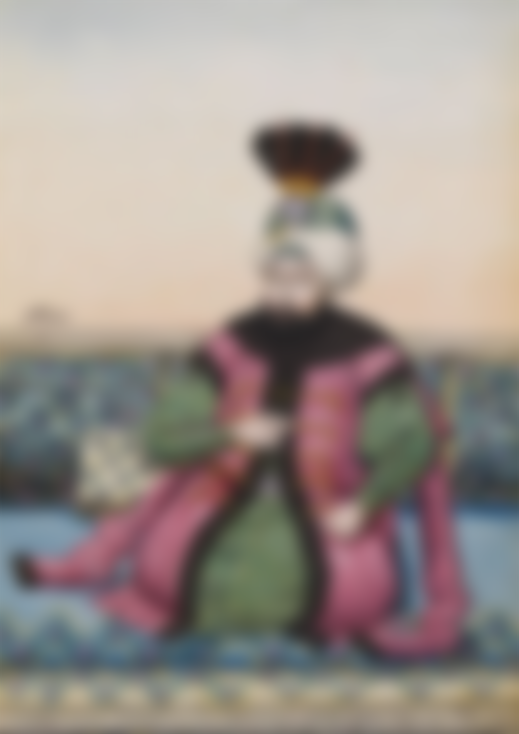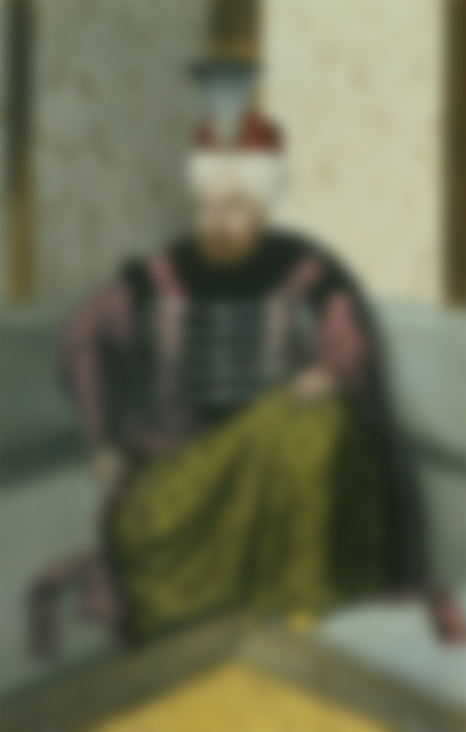Ibrahim was born on November 5, 1615, as the youngest son of Sultan Ahmed I and his favorite wife, Sultan Kosem. His father passed away when Ibrahim was just under two years old. After this, there was a period of bloody clashes in the sultan's family, when no pretender to the throne managed to maintain power for a long time. Ibrahim's uncle Mustafa I, his half-brother Osman II, older brother Murat IV took turns on the throne. Murat eventually seized power, but the fact that the sultan became his own brother was even more dangerous for Ibrahim. In 1635, out of fear that they might try to seize power from him, Murat IV ordered the execution of his two brothers - Kasim and Bayazit. Ibrahim was spared since his brother saw no threat in him, but that does not mean he escaped a bitter fate.

Youth spent in a "cage"

Although his brother spared him, Ibrahim was imprisoned in a "cage" from 1635. It was a fenced part of the harem, in which the younger brothers of the ruling sultan were sometimes kept in a kind of captivity, isolated and under guard. Ibrahim's captivity lasted until 1640, that is, until the death of Sultan Murat IV when he became the only male member of the Ottoman lineage, as no male child of Murat IV survived his early childhood. The stress that Ibrahim experienced at the time of the execution of his two brothers was so great that it left lasting consequences on his mental health. Captivity only contributed to paranoia. Ibrahim accepted the news of his brother's death with great distrust. When he was called to take power, he refused, fearing that it was a trap. It was only when the lifeless body of Sultan Murat IV was shown to him that he agreed to take power.
Years of improvement!

During the first few years of his reign, Sultan Ibrahim I proved to be a very capable ruler. Much of the credit should be attributed to Kemankesh Mustafa Pasha, who became Grand Vizier after Ibrahim came to power. His firm hand maintained the strength and stability of the Ottoman Empire. Nevertheless, Ibrahim followed and supported him in his footsteps. When Kemankesh Mustafa Pasha wrote a memorandum on public affairs, Sultan Ibrahim replied to him. Based on the Sultan's answer, it can be clearly seen that he was an extremely educated man. Ibrahim, often disguised, inspected the squares in Constantinople and ordered the Grand Vizier to correct any irregularities he would notice.
A madman on the throne!

Ibrahim never healed the traumas experienced in childhood and adolescence. The consequences of the experienced stress began to manifest themselves through frequent and very strong headaches, as well as attacks of weakness. The other extreme was terrible outbursts of rage. For a time, the sultan was very fond of the newborn of one of his concubines. Turhan Khadija Sultana - Ibrahim's chief wife objected to this. Ibrahim, enraged by her behavior, took his son Mehmed from her hands and threw him into the pool. The little prince did not drown because he was saved by a servant, but he was left with a scar on his forehead, which he wore for the rest of his life.
Turhan Khadija Sultanija was considered the only one who managed to calm his, increasingly frequent, outbursts of rage. In a moment of madness he had all 280 members of his harem drowned because he heard the story that another man had stepped into the harem. There was also a rumor circulating that he was obsessed with fuller women to the point that he sent servants across the state to find the fattest possible women for his harem. One of his main concubines was called “kereker Pâre” and was rumored to weigh about 150 kilograms. Eight concubines Ibrahim made haseki sultans (chief women) giving them immense wealth and possessions. He even gave one of them the palace of the Grand Vizier himself.
He went down in history for being - killed!

This behavior, combined with the war defeats in the war with Venice in the late years of his reign, infuriated his subjects, and especially the most dangerous ones - the Janissaries! On August 8, 1648, the corrupt Grand Vizier Ahmed Pasha was strangled and torn to pieces by a dissatisfied mass. On the same day, Ibrahim was captured and captured inside the Topkapi Palace. Ibrahim was deprived of the title of sultan, and his seven-year-old son Mehmed IV came to power. Ibrahim was strangled on August 18, 1648, in front of his palace. He thus became the third sultan in the history of the Ottoman Empire to be assassinated.





Beautiful story.